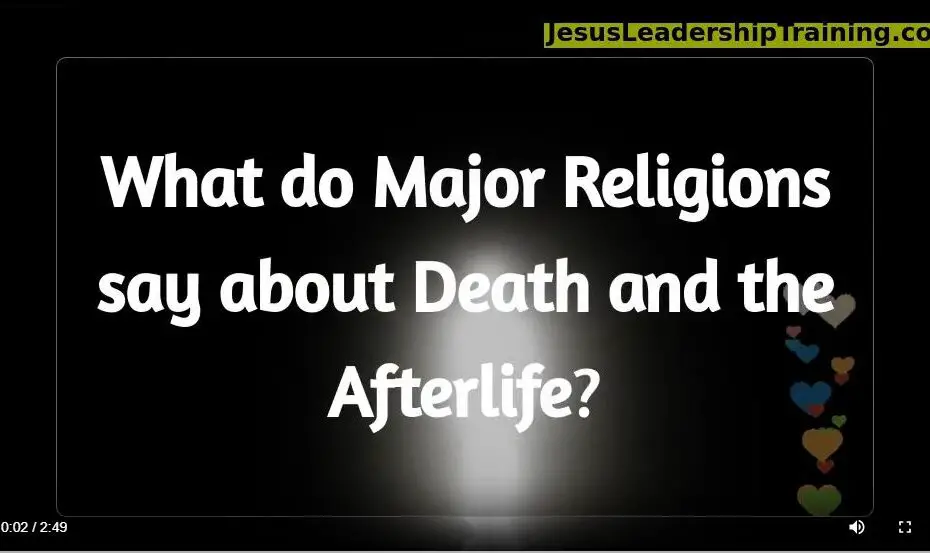Major religions offer diverse perspectives on death and the afterlife, with Christianity providing a rich tapestry of beliefs and teachings, particularly from the Bible. Here are the insights from Christianity, focusing on the Bible, along with three main takeaways at a high school level understanding:
Christianity on Death and the Afterlife
Christianity views death not as an end but a transition into eternity. The Bible speaks extensively on life after death, emphasizing heaven as a place of eternal fellowship with God for those who have faith in Jesus Christ, and warning of hell as eternal separation from God for those who reject Him. Noteworthy Bible verses include:
- John 3:16 (bolded for emphasis): “For God so loved the world, that he gave his only Son, that whoever believes in him should not perish but have eternal life.”
- Revelation 21:4: “He will wipe away every tear from their eyes, and death shall be no more, neither shall there be mourning, nor crying, nor pain anymore, for the former things have passed away.”
- Matthew 25:46: “And these will go away into eternal punishment, but the righteous into eternal life.”
These verses encapsulate the Christian hope in the face of death: belief in Jesus Christ opens the way to eternal life, a life without pain, sorrow, or suffering, in the presence of God.
Three Main Takeaways
- Death is Not the End: Christianity teaches that life continues beyond physical death. This belief provides comfort and hope, offering a perspective that sees earthly life as a journey toward a more profound, eternal existence with God.
- The Importance of Faith: The key to eternity in heaven is faith in Jesus Christ. Christianity emphasizes that it’s not merely one’s deeds but one’s faith in Jesus’ sacrifice and resurrection that grants eternal life. This underscores the value Christianity places on a personal relationship with God through Jesus.
- Eternal Life is a Choice: Christianity presents the afterlife as a choice between eternal fellowship with God or eternal separation from Him. This perspective instills a sense of responsibility, encouraging individuals to consider their beliefs and the implications for their eternal destiny.
In conclusion, Christianity’s view of death and the afterlife is deeply intertwined with the notions of faith, choice, and the promise of an eternal home with God. These teachings offer comfort and purpose, framing earthly life as a preparatory stage for a much grander, everlasting life to come.


